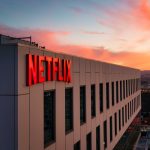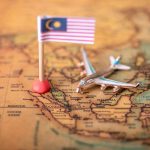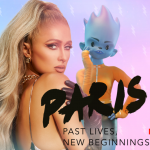By The Malketeer
In a bombshell revelation, Japanese automotive giant Toyota is reportedly planning to end its colossal sponsorship deal with the International Olympic Committee following the 2024 Paris Games, according to sources cited by Kyodo News Agency.
This surprising decision could potentially sever one of the IOC’s most lucrative partnerships, valued at a staggering US$835 million when inked in 2015.
The reports indicate Toyota’s dissatisfaction with how the sponsorship funds were utilised, alleging the money was not effectively channelled towards supporting athletes and promoting sports development.
Toyota, a long-standing partner of the Olympic movement, has remained tight-lipped, refusing to comment on the financial specifics that are said to be confidential.
Loss of Toyota’s Sponsorship May be a Significant Blow
However, this would not be the first time Toyota has distanced itself from the Olympic Games.
During the pandemic-delayed Tokyo 2020 Olympics, the company pulled its advertising in Japan, citing public backlash against hosting the event amid health concerns.
The potential loss of Toyota’s sponsorship could deal a significant blow to the IOC’s financial prowess, as the organisation derives a staggering 91% of its income from broadcasting rights and corporate partnerships.
The IOC’s TOP sponsors collectively contributed over US$2 billion in the last four-year cycle leading up to Tokyo 2020, with projections of reaching US$3 billion in the upcoming cycle.
In addition to Toyota, the TOP sponsors are: ABInBev, Airbnb, Alibaba, Allianz, Atos, Bridgestone, Coca-Cola, Deloitte, Intel, Omega, Panasonic, P&G, Samsung, and Visa.
Japan officially spent US$13 billion on the Tokyo Olympics, at least half of which was public money.
A government audit suggested the real cost was twice that. The IOC contribution was about US$1.8 billion.
The Tokyo Games were mired in corruption scandals linked to local sponsorships and the awarding of contracts.
Dentsu Raised a Record US$3.3 billion for Tokyo 2020
Dentsu Inc, the huge Japanese marketing and public-relations company, was the marketing arm of the Tokyo Olympics and raised a record US$3.3 billion in local sponsorship money. This is separate from TOP sponsors.
While the IOC remains optimistic about its partnership with Toyota for Paris 2024, industry experts suggest the organisation may need to swiftly secure a replacement should the Japanese automaker exit.
“There’s no sports property that touches as many bases as the Olympics in truly every country,” remarked Rick Burton, a sports marketing professor at Syracuse University, to the Associated Press.
As the Olympic world holds its breath, all eyes are on Toyota’s next move, which could potentially reshape the financial landscape of the Games and leave the IOC scrambling to fill a substantial sponsorship void.
MARKETING Magazine is not responsible for the content of external sites.









